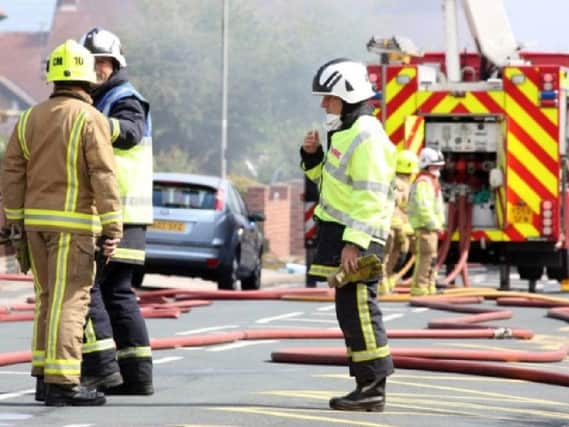Fire brigade false alarm call-outs hit a five-year high


The Fire Brigades Union says false alarms use up resources and increase response times to real emergencies, but that “it is always better to be safe than sorry”.
Home Office figures show the Greater Manchester Fire and Rescue Service responded to 14,123 call-outs in 2018-19 which proved to be false alarms.
Advertisement
Hide AdAdvertisement
Hide AdThis was the highest number for five years – and 195 more than in 2017-18.
More than two-thirds of the false alarms attended last year were caused by fire alarms and other firefighting apparatus.
This includes people accidentally setting off fire alarms, or when an alarm is triggered and a person is required to call the fire brigade as part of protocol, such as security guards.
A further 28 per cent were calls made in good faith, where the caller believed that a fire, or non-fire incident such as a road accident or medical problem, was an emergency requiring the fire service.
There were also 711 hoax calls.
Advertisement
Hide AdAdvertisement
Hide AdFBU general secretary Mike Wrack said: “False alarms, including malicious alarms, use up resources which could be better served elsewhere and increase response times to actual emergencies.
“But it is always better to be safe than sorry, and fire services should always be called when any alarm is raised.
“The latest Government figures confirm what firefighters are feeling on the ground – they are under increasing pressure, responding to more incidents with scarcer resources, as budgets and firefighters continue to be cut.
“We are deeply concerned that, after massive cuts to fire safety officers, and years of deregulation, there has been a significant increase in fires in England.
Advertisement
Hide AdAdvertisement
Hide Ad“This makes it more crucial still that fire alarms are treated seriously.”
In Greater Manchester, officers spent at least 3,986 hours at the scene of false alarms last year.
Most incidents were attended by a crew of between four and nine people. On two occasions, more than 30 officers were mobilised to deal with a single false alarm.
The national call-out number also rose but is still 26 per cent lower than it was 10 years ago, according to the Home Office.